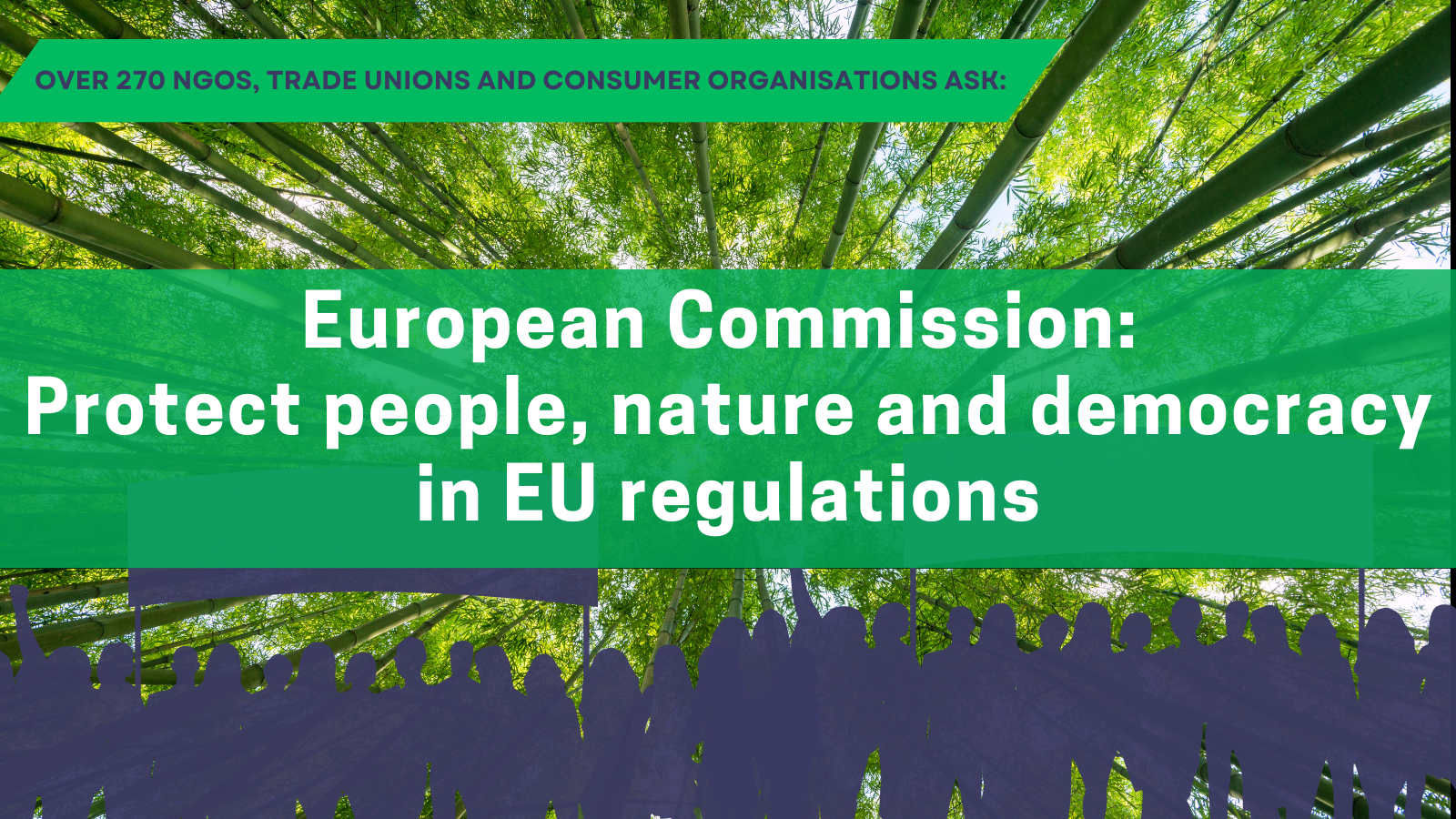The ban of BPA in food contact materials will help protect people from these endocrine disrupting chemicals (EDCs), that have also been classified as toxic for reproduction since 2006 under REACH. Exposure to Bisphenol A and other bisphenols is associated with breast cancer, infertility, early puberty, diabetes and obesity, and neurological disorders in children. But this restriction focuses on one area where bisphenols are widely used – the work to protect people's health from the group of chemicals, and in particular children is therefore far from over.
Over 70 European organisations sent a joint statement to European Commission Executive Vice-President Timmermans and Health & Food Safety Commissioner Kyriakides to express their deep concern about the lack of ambition of the Commission’s draft proposal for a “Sustainable Use of Plant Protection Products” Regulation to be published on 23 March. They make 10 demands to reach an ambitious Regulation.
Despite the obvious failure of the current Directive on the Sustainable Use of Pesticides (SUD) to reduce the use of pesticides in the EU, the Commission’s draft falls short in delivering the transformative changes needed to secure the EU’s transition towards agroecology.
Madeleine Coste, Policy Officer at Slow Food Europe, says: “Perhaps we need to remind the Commission that 1.2 million European signed the “Save Bees and Farmers” Citizens’ Initiative in which we call for an 80% reduction of synthetic pesticides by 2030, and above all, a clear roadmap on how Europe will phase out the use of synthetic pesticides altogether by 2035. Without finally banning the use of highly damaging practices or setting the transition to agroecology as a clear objective for the Regulation, we cannot hope to see a true improvement over the SUD.”
Whilst the organisations believe the Commission’s proposal for a Regulation will contribute to a better implementation of the policy, they consider many elements to be worrisome and make 10 demands to the Commission to improve their proposal for a new Regulation. These include upgrading the definition of “Integrated Pest Management” which must prioritize agroecological practices and excluding the incentivization of precision farming and genetic engineering techniques, “which will only maintain an industrial farming model and structural dependency on pesticides”.
Martin Dermine, Health and Environment Policy Officer at PAN Europe comments: “We urgently need a system change in agriculture so that farmers start working with nature, instead of destroying it. The draft proposal does not bring that change. Furthermore, the proposal fails to protect citizens from pesticide spraying next to their homes and gardens or next to schools!”
Since the adoption of the SUD in 2009, there is increasing scientific evidence of the negative effects of pesticides, and of chemical cocktails on all ecosystems, biodiversity, and human health. The urgency of moving away from the use of synthetic pesticides is thus clear, while the transition to a sustainable and toxic-free food system based on agroecology is both possible and necessary as evidenced by studies from INRAE and IDDRI.
Angeliki Lyssimachou, Senior Science Policy Officer at the Health and Environment Alliance (HEAL), says: “The European Commission and governments need to stop turning a blind eye to the devastating impacts that pesticides have on farmers, our health, and the environment. Setting ambitious and legally binding targets to phase out pesticides is an opportunity to prevent diseases linked to pesticide exposure, such as certain types of cancer and Parkinson’s disease, that the EU cannot afford to miss.”



